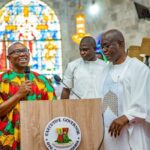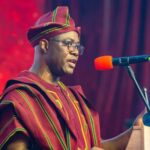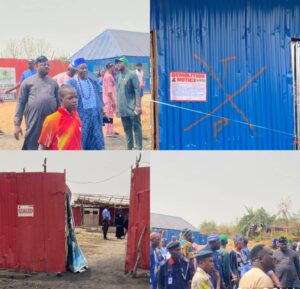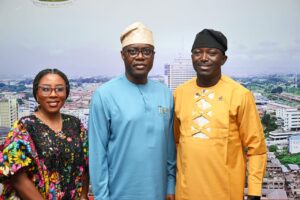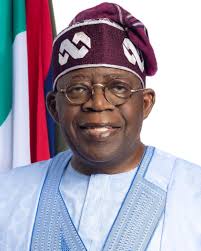
By Adeolu Arisekola.
NIGERIA is the most populous country on the African continent. With a population of over 200 million people, Nigeria is one of the largest economies in Africa, with an estimated GDP of $514.05 billion as of 2021. The country has a diverse cultural and religious population, with over 250 ethnic groups and a significant divide between the Muslim-dominated north and the Christian-dominated south. Early this year, Nigeria held its presidential election, and a new president in the person of Mr Bola Ahmed Tinubu was elected to lead the country for the next four years. No doubt, the new president will face numerous challenges in his first term in office, ranging from security to economic issues going by the extent of policy summersault and maladministration of the immediate past government headed by Rtd. General Muhammadu Buhari. In this article, I explore some of the challenges the new president will face and provide some suggestions on how to tackle them. Although Nigeria is a peculiar country which requires peculiar approaches to problem-solving. I drew on relevant examples around the world where an individual so sincere to nation-building took drastic actions to re-position their country for the better. The new President and Vice-president (Tinubu and Shettima) together with their team should explore these compilations of best practicesto make Nigeria great again. The newly elected government should not forget that Nigerians did not vote for their party APC but for their personalities. Nigerians are therefore tired of party politics with empty rhetoric; they are waiting for action that will make Nigeria a secure and better place to live.
Security challenges
One of the primary challenges the new president will face in Nigeria is the issue of security. Nigeria has been battling insecurity for years, with terrorist groups such as Boko Haram, Fulani herdsmen, IPOB and bandits responsible for numerous attacks and kidnappings in the country. Boko Haram, has been operating in Nigeria since 2002 and has been responsible for several attacks on schools, churches, and public places. The group has also carried out numerous kidnappings, with the most notable being the abduction of over 200 schoolgirls from Chibok in 2014. Despite the efforts of the Nigerian military, the group still poses a significant threat to the security of the country. Fulani herdsmen, on the other hand, have been involved in several clashes with farmers, resulting in the loss of lives and property. The bandits, who operate mostly in the northwest, have also been involved in kidnappings and attacks on villages. In addition to these terrorist groups, Nigeria also faces the challenge of ethnoreligious conflicts. These conflicts have led to the loss of lives and property, with the most recent being the clashes between the Yoruba and Hausa communities in Shasha, Ibadan. Insecurity and kidnapping are two of the most pressing issues facing Nigeria today. The new Nigerian president will have to take bold and decisive action to tackle these issues and restore safety and security to the country before any other plan can be established. Here are some suggestions on how to best handle the situation, drawing from examples of successful anti-kidnapping policies around the world:
One of the most effective ways to combat kidnapping is to strengthen law enforcement. This includes providing law enforcement agencies with the necessary resources, training, and equipment to tackle kidnapping effectively and improve their standard of living. The Nigerian government can also collaborate with foreign governments and security agencies to share intelligence and expertise. The government can learn from the experience of Mexico, which has implemented an effective anti-kidnapping policy in recent years. Mexico’s anti-kidnapping policy involves the deployment of special anti-kidnapping units, the establishment of dedicated hotlines, and the use of sophisticated tracking and surveillance technology. Another effective way to combat kidnapping is to increase public awareness about the dangers of kidnapping and how to prevent it. The government can launch public awareness campaigns that educate the public about the risks of kidnapping, how to avoid becoming a victim, and what to do in case of a kidnapping. Speedy trials of convicts will restore the hope of the people in the justice system and by extension the government. The Nigerian government can learn from the experience of Colombia, which has implemented a successful anti-kidnapping policy that focuses on prevention and public awareness. Colombia’s anti-kidnapping policy involves the dissemination of information about the risks of kidnapping and the use of public service announcements to raise awareness about the issue.
Kidnapping often occurs in areas where there is high unemployment, poverty, and social inequality. Addressing the root causes of kidnapping, such as poverty and inequality, is therefore essential to combating the problem. The Nigerian government can learn from the experience of Malaysia, which has implemented a successful anti-kidnapping policy that addresses the root causes of kidnapping. Malaysia’s anti-kidnapping policy involves the implementation of economic policies that create jobs and reduce poverty, as well as the provision of social services such as health-care and education. Also, issues facing young people in northern Nigeria need to be tackled as soon as possible. Almajiri: They are the tools for most crimes in Nigeria. Almajiris are not born to be poor or live impoverished lives, but their parents failed in their responsibilities, and all previous Nigerian governments failed Nigerians, not only Almajiris. It is also worth noting that the unplanned cashless policy has led to a drastic reduction in kidnappings in the country. We all witness thissharp decline shortly before the election during the ill-timed currency redesign. This policy, which limited cash withdrawals and encouraged the use of electronic payments, has made it more difficult for kidnappers to collect ransoms and reduced the incentive for kidnapping, It will be very nice to take advantage of it and use it as an opportunity to tackle kidnapping, Bribery and money laundering in our beloved country, Nigeria.
Economic challenges
Nigeria’s economy is the largest in Africa, with a GDP of $514 billion as of 2021. However, the country has been facing numerous economic challenges, ranging from inflation to a high level of debt. Inflation has been on the rise in Nigeria, with the consumer price index (CPI) increasing by 18.1 percent in November 2021, the highest in over four years.
The high rate of inflation has made it difficult for Nigerians to afford basic necessities, such as food and housing.
Nigeria’s debt-to-GDP ratio is also a cause for concern, with the country owing over $100 billion in debt. The new president will have to come up with a plan to address the country’s debt crisis and ensure that the country’s debt is sustainable.
Unemployment is also a significant economic challenge facing Nigeria. The unemployment rate in Nigeria is estimated to be around 33%, with youth unemployment at 45%. The new president will have to address the issue of unemployment by creating jobs, encouraging entrepreneurship, paying more attention to technical schools, and making them free. Hence, 35% of Nigerian youths will be financially stable.
Infrastructure Challenges
Nigeria’s infrastructure is inadequate, with poor roads, electricity, and healthcare systems. The country’s road network is in a state of disrepair, making it difficult for goods to be transported across the country. The electricity supply in Nigeria is also unreliable, with frequent power outages that affect businesses and individuals.
The healthcare system in Nigeria is also inadequate, with a shortage of medical personnel and facilities. This has led to a situation where Nigerians have to travel abroad to seek medical treatment for even minor illnesses.
To tackle the infrastructure challenges facing Nigeria, the new president will have to invest in the country’s infrastructure. The government will have to work with the private sector to improve the country’s road network, electricity supply, and healthcare system. This will require significant investment in infrastructure and a commitment to improving the country’s infrastructure in the long term.
Corruption
Corruption is a significant problem in Nigeria, with the country ranking 149th out of 180 countries in Transparency International’s Corruption Perceptions Index for 2021. Corruption is pervasive at all levels of government and has hindered Nigeria’s development.
The new president will have to tackle corruption in Nigeria by ensuring that government officials are held accountable for their actions. This will require strengthening anti-corruption agencies such as the Economic and Financial Crimes Commission (EFCC) and the Independent Corrupt Practices and Other Related Offences Commission (ICPC). The president will also have to ensure that there are no sacred cows and that everyone is held accountable, regardless of their position in society.
Education
Education is a fundamental issue that the new president will have to address. Nigeria has one of the highest rates of out-of-school children in the world, with an estimated 13.2 million children out of school. This is due to several factors, including poverty, conflict, and the lack of access to education in some areas. To tackle the issue of education in Nigeria, the new president will have to invest in education and ensure that all children have access to education. This will require investing in infrastructure, providing teachers with the necessary resources, and improving the quality of education in the country. The new government should embrace the work ethics of other countries like the United Kingdom.
Where should the new president turn to for inspiration?
Successful political leadership can serve as a source of inspiration for the new Nigerian president, as he seeks to turn the country around for the better. Here are a few examples of leaders who made significant progress within a short period of time:
Lee Kuan Yew, Singapore:
Lee Kuan Yew is widely regarded as the father of modern Singapore. When Singapore gained independence in 1965, it was a small, poor, and underdeveloped country. However, under Lee’s leadership, Singapore underwent a rapid transformation and became one of the wealthiest and most prosperous countries in the world. Tinubu and shettima can do better, that is what I believe right now.
At the onset of his administration, Lee believed that the key to Singapore’s success was good governance, economic growth, and social stability. He famously said, “Good governance is about providing a vision, serving the people, and creating the environment for the people to achieve their aspirations.” The new Nigerian president can learn from Lee’s example and focus on good governance, economic growth, and social stability to achieve Nigeria’s transformation. Tinubu and shettima, you guys can do better; that is what I believe right now.
Jacinda Ardern, New Zealand:
Jacinda Ardern became the Prime Minister of New Zealand in 2017, and she has since become a global icon for progressive leadership. Ardern has been praised for her compassionate leadership style, which emphasizes the importance of empathy, kindness, and inclusivity.
Ardern famously said, “One of the criticisms I’ve faced over the years is that I’m not aggressive enough or assertive enough, or maybe somehow because I’m empathetic, it means I’m weak. I totally rebel against that. I refuse to believe that you cannot be both compassionate and strong.” The new Nigerian president can learn from Ardern’s leadership style and prioritize empathy, kindness, and inclusivity in his approach to governance.
Paul Kagame, Rwanda:
Paul Kagame became the President of Rwanda in 2000, and he has since overseen a period of unprecedented economic growth and development in the country. Rwanda has been praised for its efficient government, low levels of corruption, and commitment to social development. Kagame famously said, “Rwanda does not have the luxury of being able to waste any of its resources. Every effort must count.”
The new Nigerian president can learn from Kagame’s approach to governance and prioritize efficiency, accountability, and social development to achieve Nigeria’s transformation. My current opinion is that Tinubu and Shettima, are capable of doing better.
Conclusion
In conclusion, the new president of Nigeria will face numerous challenges in his first term in office. These challenges include security, economic issues, infrastructure, corruption, and education. To tackle these challenges, the president will have to work with all stakeholders, including the private sector and civil society organizations. The president will also have to be committed to improving the country’s long-term development and ensuring that all Nigerians benefit from the country’s economic growth. The new Nigerian president can draw inspiration from successful leaders who have transformed their countries for the better within a short period of time. To tackle the security challenges facing Nigeria, the new president will have to come up with a comprehensive security plan that involves the cooperation of all security agencies in the country. The president will also have to address the root causes of the conflicts, which include poverty and unemployment. By focusing on good governance, economic growth, social stability, empathy, kindness, inclusivity, efficiency, accountability, and social development, the new president can achieve Nigeria’s transformation and ensure that all Nigerians benefit from the country’s economic growth. The new government should not be too friendly; they also need to tackle Nigeria’s criminals with a high level of force and without having mercy on them within the first few months in office and by the second year of governing the country.Failure to take decisive actions will lead to criminals undermining the government and forcing the government to parley. This can eventually lead to the requisition of the government and an indirect takeover. May this never be the case again in Nigeria.
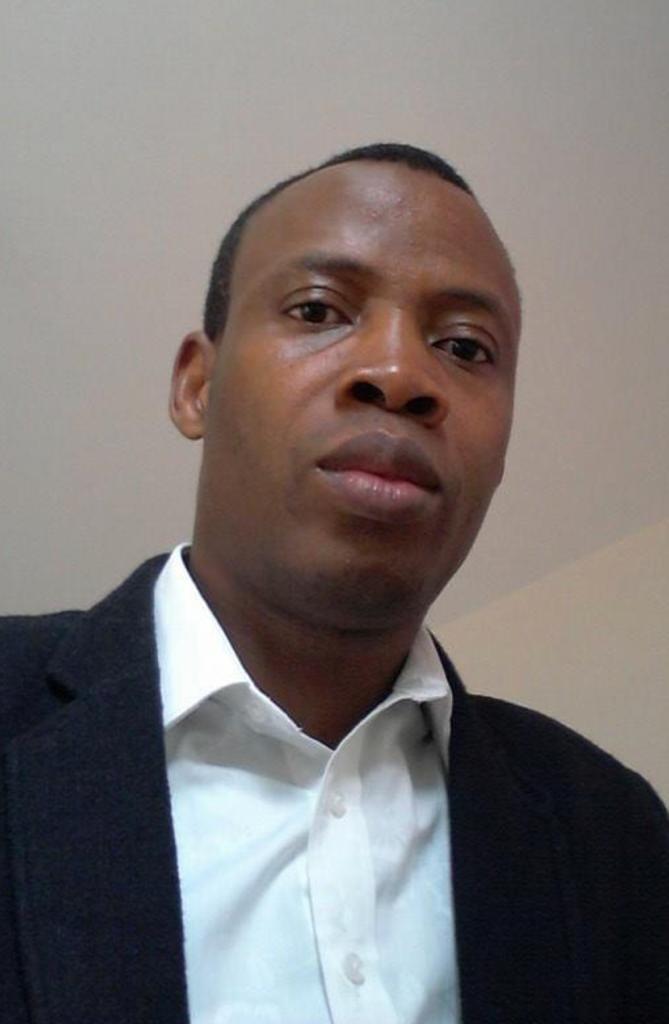
God bless the Federal Republic of Nigeria, our beloved country.
Yours sincerely
Engr Arisekola (MSc, BEng) writes in from Manchester, United Kingdom.
